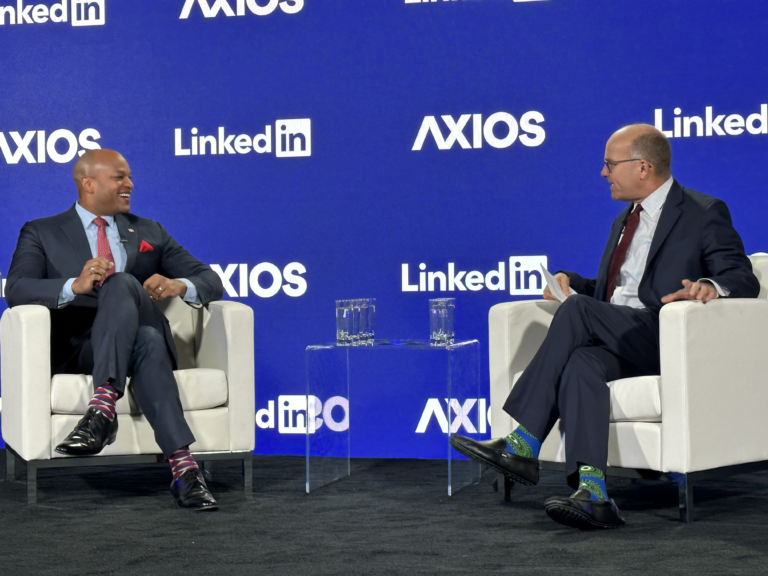Last week, we joined “The Shift Toward Skills-Based Hiring,” a convening hosted by Axios and LinkedIn with U.S. Secretary of Education Miguel Cardona, Congresswoman Virginia Foxx (who leads the House Committee on Education and the Workforce), and newly-elected Maryland Governor Wes Moore.
According to a recent analysis from LinkedIn, the number of job postings that don’t require a degree has increased to 19 percent since 2021.
It’s no accident that we’ve seen an uptick in job postings that don’t require a college degree since Whiteboard Advisor’s Erica Price Burns first penned “Skills-Based Hiring: A Primer.”
Prior to the pandemic, most major airlines required pilots to have a four-year degree in addition to having a pilot credential and a certain number of flight hours. Whether a pilot majored in engineering or basket weaving, it was viewed as a “necessary” credential. In recent years, a tight labor market and seemingly endemic skills-haps have led nearly every major airline to drop the four-year degree requirement.
Last year, the AdCouncil launched the Tear the Paper Ceiling campaign, based on the groundbreaking research of the nonprofit Opportunity@Work, urging employers from every sector to reconsider vestigial degree requirements.
In response, a small but vocal number of employers in other sectors have also made the shift. And with little fanfare, the Biden Administration kept a Trump era executive order designed to cut back on degree requirements in federal job postings. Now, a growing number of states, including Maryland, Colorado, Pennsylvania, and North Carolina, have also eliminated degree requirements from thousands of jobs.
At the event, the joint appearance from Secretary Cardona and Rep. Foxx signals not just federal support, but the potential for rare bipartisan collaboration; how and whether the federal government could play a role in expanding skills-based hiring remains uncertain.
Rep. Foxx expressed renewed hope for passage of the JOBS Act, which would allow federal Pell Grant dollars to be used for short-term, non-degree programs.
Not surprisingly, both Secretary Cardona and Rep. Foxx made clear that endorsement of skills-based hiring isn’t at-odds with the value of the college degree. “Four-year colleges have an important role here,” Secretary Cardona said. “We need to encourage an evolution in schools to meet the workplace demands of today [and] they’re being pushed to improve their ROI, which will help.
While there’s a growing recognition that the bachelor’s degree is no longer the only or best option by industry experts, there’s a delay in the general public discovering this truth. “We need a mindset change,” said the Secretary.
But mindset change is hard. Rep. Foxx shared that schools have told her “it’s easier to turn a battleship than change education,” and that seems to be true. The push for skills-based hiring is as much about changing employer practices as it is encouraging colleges to get serious about ROI, and to strengthen graduates’ ability to share and articulate the labor market value of the skills they’ve developed. “But things are changing,” she said. “We are seeing examples of schools embracing skills development over bachelor’s degrees. Community colleges have been doing this for years.”




